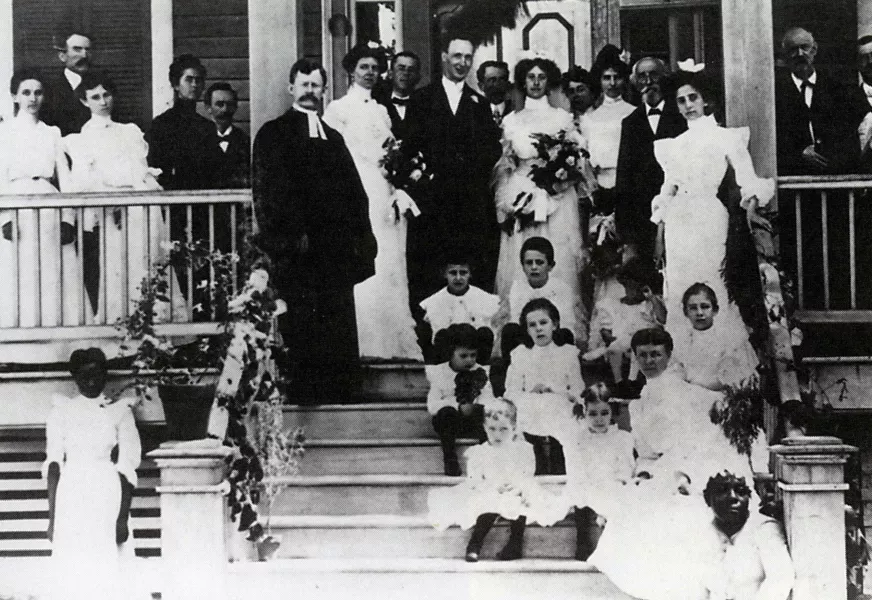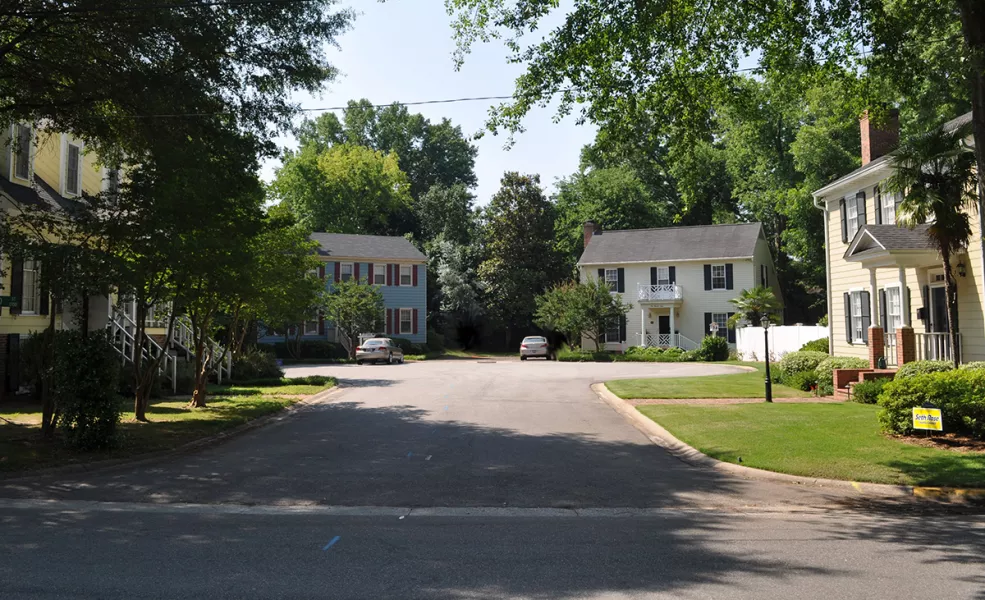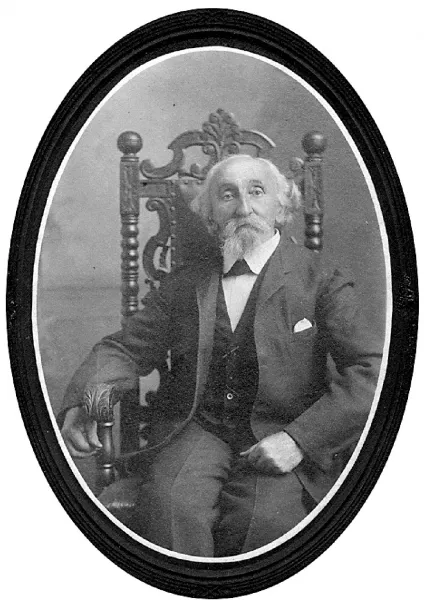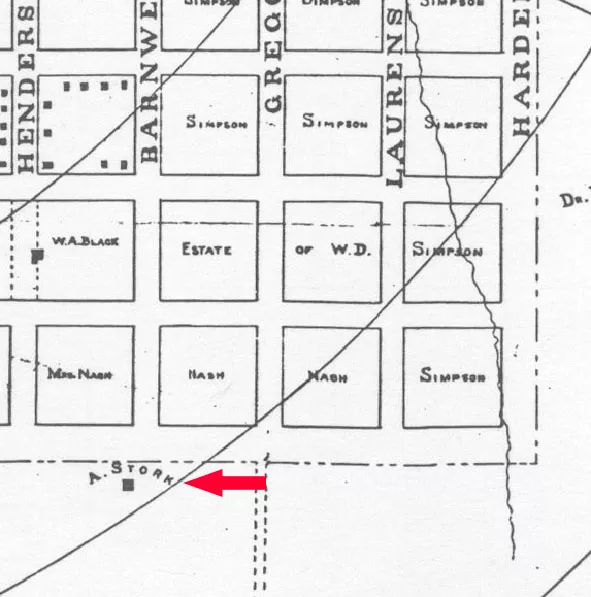1716 Heyward Street
Site of "Rose Hill" House
By 1895, grocer Abram Stork, Sr. had constructed a house outside the city limits on the south side of Lower Street (today's Heyward Street), where he owned a large tract of land called 'Rose Hill.' Newspaper announcements in 1910 refer to the Stork family home as 'Rose Hill,' and it was finally given the address of 1716 Lower (Heyward) Street, after the construction of other residences nearby. Following a stint as apartments and as the residence of other family members, this neighborhood landmark appears to have been demolished in 1973.
Following its destruction, prime real-estate within the Hollywood-Rose Hill neighborhood was ripe for redevelopment. What followed was the creation of a cul-de-sac, a design more commonly found within later 20th-century suburbs. Featuring a collection of Colonial Revival-inspired houses, the area is today known as William and Mary Court.
Stork Family
By 1895, German immigrant, Confederate veteran, and entrepreneur Abram Stork, Sr. and his descendants owned most of the land south of the city where Hollywood-Rose Hill came to be established. Involved in many different business pursuits, including saloons and liquor stores, grocery stores, and some real estate, this branch of the Stork family became known mostly for its greenhouses that were located on the family estate south of Lower Street.
Records indicate that Stork began his real-estate pursuits around 1888, at the same time he was operating a restaurant and saloon at 80 Richardson Street (today's Main Street). It is believed that he acquired what would become the family's large tract of land south of the city limits at this time. Before his wife, Marie, died that year, she had bore him six sons, John, Gustave, William, Martin, Abram Jr., and Frederick, and two daughters, Mary and Elisabeth. By February 1900, the family was operating Rose Hill Greenhouses on its land from which the enterprise derived its name. A Rhine, Germany native, Abram Stork, Sr. immigrated into the United States in 1848 and became an important part of Columbia's German community. Stork became an active member of Ebenezer Lutheran Church on Richland Street. During the Civil War he saw extensive combat, including action at Hilton Head, Second Manassas, Sharpsburg, Fredericksburg, Gettysburg, and at the Battle of the Wilderness, where he was severely wounded. Following the war, Stork grew to be one of Columbia's more successful businessmen.



